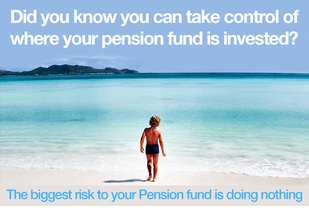|
If you’re planning to transfer currency for an overseas investment, you’ll probably
talk to your high-street bank. Don’t! You’ll save money by going to a specialist currency exchange dealer. Send all your international transfers through currency dealers rather than banks. Why? They give you a better exchange rate, lower costs and a speedier service. This is a constant source of annoyance to the banks but they can't compete with dealers. An average high-street bank will probably offer spot rate (the real, interbank, rate of exchange), less 4 per cent. An average currency dealer will offer an ordinary customer spot rate, less 2 per cent. On a £100,000 transfer you save £2,000 on the exchange rate alone. The dealers will be quicker too. In the days before currency dealers became popular, the money would be send by a UK bank to another country via another bank in the local country who would then eventually send it to the end bank. There were three banks involved but, more crucially, there would be a bank in the middle that didn't really care how long it took them to send the money! Check the Charges When it comes to comparing dealers, it is worth remembering that, in addition to exchange rate differences, there are also differences in charges. Currency dealers typically charge less than high-street banks for transferring money abroad. In fact, many of them don't charge anything at all or, more accurately, they incorporate the fees into the exchange rate. One example of this is - two transfers to Turkey done through a well-known high-street bank. The first for £100,000 and the second was for £200,000. The high street bank charged fees of £535 and £1035 respectively. This is a total of £1,570 just in bank charges. A currency dealer would have charged either nothing or a nominal amount such as £20 (i.e. a saving of £1,550). And remember that this is in addition to the exchange rate differences (which probably amount to another couple of thousand pounds). Link to our currency exchange partner page - LINK Millions will see pensions slashed by up to 20% as new EU rules are set to send annuities plummeting22/6/2012
MORE bad news on pension's!! TIME TO ACT!
Millions of people could see the value of their pensions slashed by up to 20 per cent because of new EU rules. Those with a £100,000 pension fund could be more than £1,100 per year worse off in retirement because of the reforms, research has shown. The Solvency II rules, which are due to come into effect in January 2014, will force pension funds to hold a higher proportion of 'safe' Government bonds. As the bonds - called gilts - have such low rates of return it will drive down the returns on retirement fund annuities, which are used to pension income. The reforms are designed to make pension funds safer and reduce the risk of them going bust. Annuities, which set retirement income for life, have already fallen to historic lows because of the impact of quantitative easing. At present, a pension annuity fund may invest 20 per cent in low-yield gilts and the rest in riskier corporate bonds which have a higher rate of return. But under the new EU rules, annuity funds will be forced to hold a higher percentage of gilts. New research by Deloitte suggests annuity rates will plunge by between five and 20 per cent when the directive comes into force in January 2014. A £100,000 pension pot currently gives an income of £5,837, but once the regulations come into effect they will be between £292 and £1,167 a year worse off. Take control of your pension by investing in Alternative Investments via a SIPP. LINK TO SIPP INFORMATION PAGE AND VIDEO - SIPP's LINK Read more: ARTICLE LINK Even though yesterday was a bank holiday in the UK, the currency markets were still open, with the euro suffering against most major currencies after the elections
over the weekend. The voter backlash against recent austerity measures has bought in a new president in France, with the new president, Francois Hollande, wanting a more growth friendly approach and renegotiation of the fiscal compact. This puts France on a collision course with Germany and the EU who are firmly against any renegotiation. In addition to this, Greece has also caused more pain for the struggling single currency, as the 2 main parties supporting the country’s international bailout failed to secure a parliamentary majority, raising further questions of Greece’s membership of the euro. Due to the level of uncertainty the new government in France and lack of any majority in Greece Sterling gained further ground against the euro, moving to a 3 ½ year high against the single currency. Now that the rate has moved above the 2010 high of €1.24, the door is potentially open for further gains, especially in the short term whilst Greece struggles to form a government. One word of caution to any euro buyers, is once the uncertainty over Greece is resolved we could see these recent gains given back and the pair drift back towards the low €1.20’s If you wish to forward purchase your currency whilst rates are high contact our currency partners - LINK |
AuthorInvestment Property Worldwide will try bring to you a diverse range of property, investment news. Archives
October 2014
Categories
All
|
| Investment Property Worldwide.com |
|



 RSS Feed
RSS Feed
